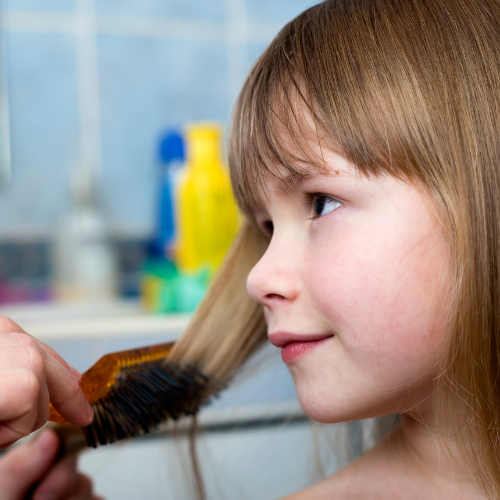Dangers of Social Stigma

Head lice is far more common than you would think. In fact, in children, head lice are the second most common ailment next to the common cold. Most people think of head lice as a taboo subject so they choose not to communicate with other parents about their child having lice. Unfortunately, not communicating with the proper people can cause more issues and put your child at risk for re-exposure. The more information you provide to others, the better your chances of beating the epidemic.
Although head lice are never fun and always inconvenient, there is never a reason to be ashamed or feel +dirty. The stigma and incorrect information about head lice goes back decades. That same incorrect information has caused Americans to associate head lice with bad hygiene and therefore end up embarrassed. That embarrassment causes a lack of communication between schools and parents, which allows the problem to spread. But make no mistake, head lice are not a reflection of poor hygiene or poor parenting.
“How does not communicating spread lice?” The average case of head lice is detected about 3-8 weeks after the infestation has begun. This time period could be longer, especially if the family has never dealt with head lice before. After having lice for two weeks, a person is considered contagious. Once contagious, any head to head contact puts others at risk. Family members, peers and friends are all exposed. If no one is notified that the first student has head lice once it’s discovered, none of the people who were exposed have the opportunity to stop their infestation before it becomes contagious. This cycle will continue until communication about head lice becomes a priority. After you discover lice, notifying your child’s teacher, any close friends, any sleepover buddies, or extra-curricular friends can keep your child from being re-exposed. The more people you alert to your lice situation, the better the chance that friends are properly checked and treated so they don’t pass lice onto anyone else.
Since head lice are a human parasite, they do not discriminate. Once exposed, everyone can be at risk for head lice. While lice do prefer cleaner hair, no hair is ever going to be dirty enough to not contract lice. Neither hair type nor race will affect your ability to contract lice. Head Hunters aims to lessen the embarrassment and shame that comes with your family contracting head lice. Heeding the social stigma and myths that comes with head lice will only make your journey more tedious. So, next time that your family has lice, let go of the stigma and communicate with those around you (and your local lice expert) to help fight the Head Lice Epidemic.



